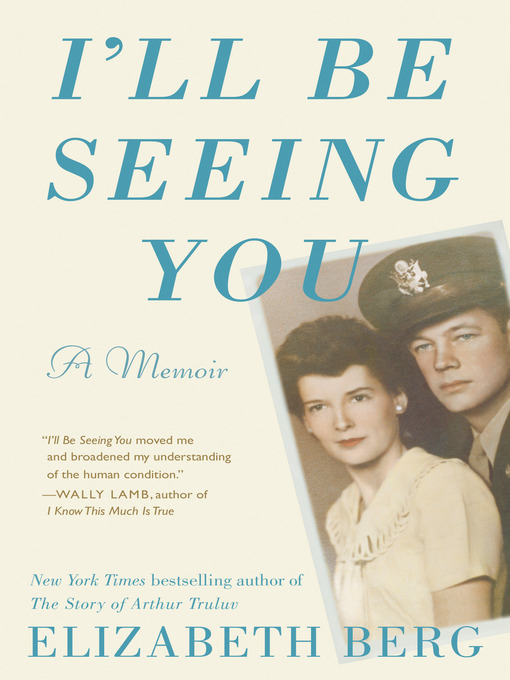“I’ll Be Seeing You moved me and broadened my understanding of the human condition.”—Wally Lamb, author of I Know This Much Is True
Elizabeth Berg’s father was an Army veteran who was a tough man in every way but one: He showed a great deal of love and tenderness to his wife. Berg describes her parents’ marriage as a romance that lasted for nearly seventy years; she grew up watching her father kiss her mother upon leaving home, and kiss her again the instant he came back. His idea of when he should spend time away from her was never.
But then Berg’s father developed Alzheimer’s disease, and her parents were forced to leave the home they loved and move into a facility that could offer them help. It was time for the couple’s children to offer, to the best of their abilities, practical advice, emotional support, and direction—to, in effect, parent the people who had for so long parented them. It was a hard transition, mitigated at least by flashes of humor and joy. The mix of emotions on everyone’s part could make every day feel like walking through a minefield. Then came redemption.
I’ll Be Seeing You charts the passage from the anguish of loss to the understanding that even in the most fractious times, love can heal, transform, and lead to graceful—and grateful—acceptance.


